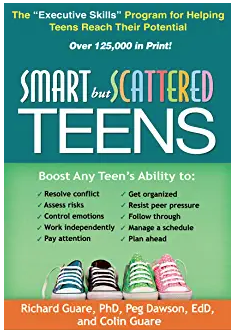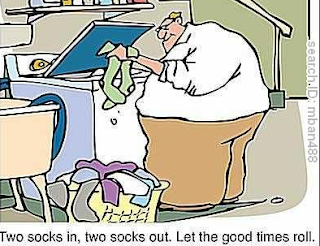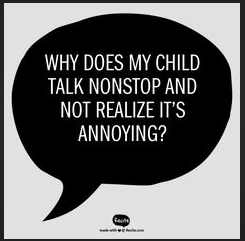To get personal for a minute, I started this Blog after my dad died in March. He was 101 years of age and we were still discussing politics up to the day before he died. I keep thinking that one of the things that kept him going was his life-long love of reading and his innate curiosity. At one of our family gatherings to remember him, I asked my eldest grandson if he would create a blog honouring his great-grandfather and Cameron did so. And that led me to realize that I too could be a blogger about what I've learned as an educator, both in the classroom and as a tutor. I think - I know - my dad would be proud of what I have done (and don't I wish I could share this with him!)
 |
| Here's Dad with my sister Corrine on the left and me on the right, in Wenselas Square, Prague. We took him and our step-mom on a river cruise to celebrate his 90th birthday. Here's to dads! |
Some of the gems from The Tutoring Blog (IMHO):
- I started blogging with a review of a book called Smart but Scattered. It's a most readable book with practical suggestions for all ages. There is also a version for teens, Smart but Scattered Teens.
- I have two websites that send regular links to resources to my inbox. One is understood.org We focus on making real, positive impact in the lives of people who learn and think differently by offering tools, support, and community. Because our differences are our greatest strength. The other is ADDitude magazine
- It's that time of year when we are either making lists or checking things off lists! Here's a list of activities and games that will help all of us with our Executive Functioning skills and have fun at the same time.
- Speaking of fun times, have you played Tenzi yet? I bought a stack of cards called 77 Ways to Play Tenzi and it is the game of choice for the younger grandchildren. They borrowed it for one of their camping trips; not only is it fun, but it's compact!
- One of the skills I tried to teach my daughters and my students is that of self-advocacy. Here's a link that might be even better than my original post. And this link explains a little more about this important skill.
- The 'End of the Day Buddy' system was one of my favourite posts and just recently I saw something similar on understood.org; this time it was called 'Study Buddy'.
- In the post on Developing Self-Determination, this point was important:
- Model decision-making: When you're making a decision, talk through it with your children; let them hear the thought-processes that you use to make decisions. A Pros and Cons list is a great way to help them see what goes into decision-making.
- Here's a list of books for reluctant readers in Grades 3-5 from Summer Reading . That link led me to this site about graphic novels and how they can help kids with reading. I just might have to do an entire post of this topic!
- When writing the Domino Effect, I found a site entitled Learning Works for Kids. LearningWorks for Kids was founded on the principle that popular video games and other digital media, when used mindfully and responsibly, can be powerful tools for sharpening and improving children’s academic performance and cognitive Thinking Skills. This is especially true for the children we call Alternative Learners: kids who struggle with everything from mild learning difficulties to diagnosed disorders such as Asperger’s, Dyslexia, and ADHD.
- As January approaches, I hope you've got a variety of calendars for 2020, including one showing the whole year at a glance, a monthly calendar, and a weekly one. I think the monthly calendar is the most important and most useful. Here's the biggest take-away from The Executive Functions of Time Management about the monthly calendar:
- Crossing off the days is a great motivator. We can see the time gap closing between 'now' and 'then'. The open spaces are shrinking and we get a really good grasp of time passing.
- When teachers use this strategy of having the kids cross off the dates, they notice that the students worked more on their tasks because they could 'see' that deadline creeping closer.
- I wrote three posts recently about ADHD, two actually appearing in October, ADHD Awareness month. For a variety of reasons, both personal and professional, I have become much more aware of ADHD and relevant resources. I so wish I knew then (when I was in a classroom) what I know now. One of the key take-aways from Life Hacks for Adults and Kids with ADHD (and others) is to look for progress, not perfection.
Thanks, as always, for reading. Please let me know if there are topics you'd like me to investigate. I'm getting so much pleasure writing these blogs and it's encouraging to hear from you.
Have a great Christmas. Enjoy the break; stay well; and keep reading!











































